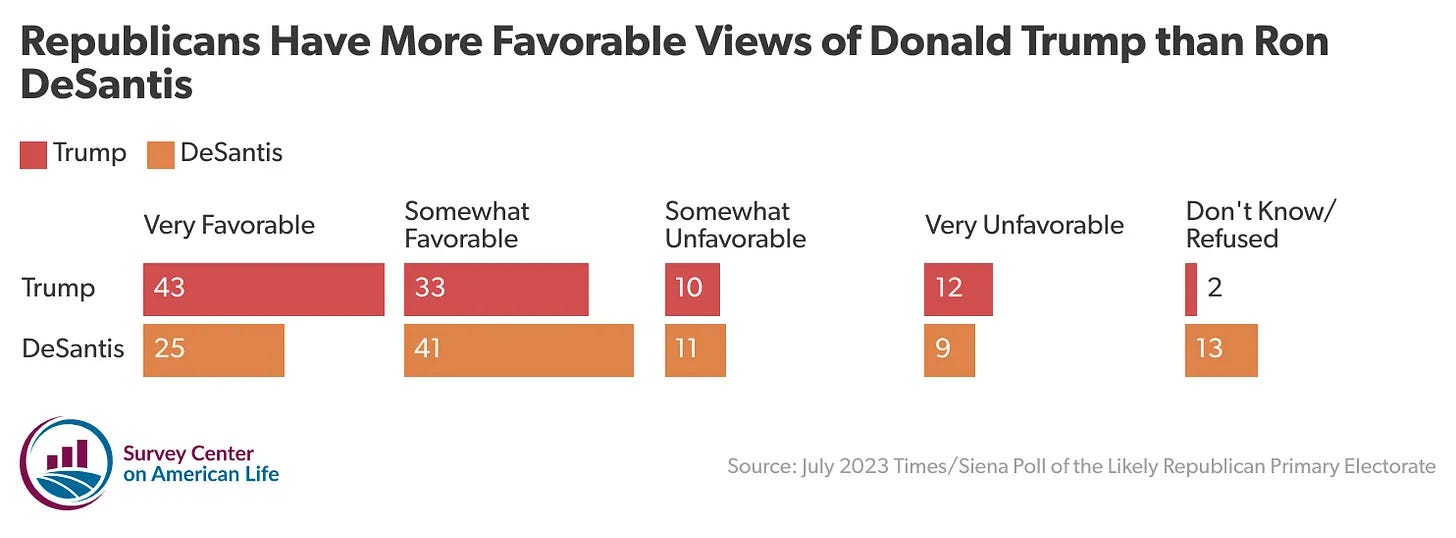Weekly Grounding #15
News, links, writing
Weekly Groundings are published every Friday to highlight the most interesting news, links, and writing I investigated during the past week. I hope they help ground your thinking in the midst of media overload. Please subscribe if you’d like to receive these posts directly in your inbox.
Without further ado, here’s this week’s Weekly Grounding:
“Tracking Orwellian Change: The Aristocratic Takeover of ‘Transparency’”
- traces the transformation of the meaning of “transparency” for . “Transparency” used to be “understood to mean a pro-democratic concept giving ordinary citizens the power to see how their government operates” but when “elite politicians and media figures speak of ‘transparency’ now, they mean giving government power to obtain ‘transparency’ into the activities of private citizens.” He continues: “The…video of World Economic Forum head Klaus Schwab speaking on the topic, which circulated a great deal last week, represents the extreme villainous end of the reversal. Transparency in Schwab’s conception has been turned on its head, to mean an unavoidable system of total non-privacy the world must learn to accept…Transparency is what authorities and possessors of the new Promethean thunderbolt want to have into your every action, transaction, and thought.” The video—which connects to some of the intellectual history discussed in my recent essay, “Ted Kaczynski and the Paradox of the Postwar Predicament”—is worth a watch:
- traces the transformation of the meaning of “transparency” for . “Transparency” used to be “understood to mean a pro-democratic concept giving ordinary citizens the power to see how their government operates” but when “elite politicians and media figures speak of ‘transparency’ now, they mean giving government power to obtain ‘transparency’ into the activities of private citizens.” He continues: “The…video of World Economic Forum head Klaus Schwab speaking on the topic, which circulated a great deal last week, represents the extreme villainous end of the reversal. Transparency in Schwab’s conception has been turned on its head, to mean an unavoidable system of total non-privacy the world must learn to accept…Transparency is what authorities and possessors of the new Promethean thunderbolt want to have into your every action, transaction, and thought.” The video—which connects to some of the intellectual history discussed in my recent essay, “Ted Kaczynski and the Paradox of the Postwar Predicament”—is worth a watch:
“CDC Now Refusing New COVID Vaccine Adverse Event Reports in Its V-Safe Program”
While transparency might now mean surveillance of “your every action, transaction, and thought,” the Centers for Disease Control and Prevention is incredibly uninterested in hearing about adverse events from covid vaccines, reports David Gortler for The Brownstone Institute. He writes that “the CDC has concluded that collecting new safety reports is somehow no longer in the interest of America’s public health. Existing data from the V-safe site showed around 6.5 million adverse events/health impacts out of 10.1 million users, with around 2 million of those people unable to conduct normal activities of daily living or needing medical care, according to a third-party rendering of its findings. In other words, despite mRNA shots still being widely available and the CDC promoting its continued use, it’s ‘case closed’ with regards to collecting new safety reports, under today’s federal public health administration.”
“Look Out: Ukraine Will Cost More than Half a Trillion More if the War Ends Tomorrow”
I’ve often found it difficult to comprehend the sheer magnitude of American spending in Ukraine. This article by
at helps put things in perspective: “Ukraine is the most costly operation ever carried out by the United States. The US Marshall Plan for European reconstruction after World War 2 cost the United States $13.3 billion. That amount, in 2023 dollars, would be $173 billion, roughly a third of what reconstruction would cost for Ukraine.” He continues: “It may be that some Washington insiders are thinking that the best thing is to prolong the war as long as possible, because if the fighting continues the US just needs to provide military assistance and budget support for the government, but not reconstruction assistance. In effect, that is the Biden administration policy. By continuing the war the Biden government thinks they can convince Congress to keep paying and they can keep Ukraine ‘alive’ by forking over arms and money to pay salaries and for needed supplies. But will Congress be willing to keep spending for an endless war? It is likely Congress will want to know where the money is going, how it is used, and how the US government accounts for its spending.”
“Republican Voters Don't Particularly Like Ron DeSantis”
- analyzes Ron DeSantis’ campaign struggles in this article for . The following data comparing Republican voter perceptions of Trump and DeSantis is striking:
What explains this kind of polling? Cox writes: “Few people would say that Donald Trump is a good role model, parent, husband, or even human being, but his supporters have great affection for him. Some have argued this is due to Trump’s willingness to ignore social norms and conventions, or that he has the right enemies. I would argue that it’s more than that. Donald Trump relishes the opportunity to engage with his supporters, and the energy and enthusiasm he brings to his rallies as well as the enjoyment he gets from these events are impossible to fake. Trump is a seasoned performer and his act works because of the intense enjoyment he derives from it; Trump’s supporters feel this deeply. While he’s not one of them, they believe he likes them anyway.”
- analyzes Ron DeSantis’ campaign struggles in this article for . The following data comparing Republican voter perceptions of Trump and DeSantis is striking:
- offers a useful summary of the main philosophical camps on the development of Artificial General Intelligence (AGI) at . For anyone seeking to understand these often arcane and insular debates, this is a good place to start. Freestone writes: “All serious worldviews are extravagant. They have to be if they purport to capture reality. The stakes of reality are always ultimate. This is why extremism is pregnant within almost any belief system or ideology. It’s especially close to the surface, however, any time someone posits infinite value in the future.”
“Global Nuclear Renaissance Under Guise of ‘Net Zero’”
This interview, translated from the original French at Wrong Kind of Green, chronicles the history of pro- and anti-nuclear advocacy in France. I found this commentary particularly insightful: “As we supply the whole of society with nuclear power, we must maintain a scientific clergy of nucleocrats because it is a very complicated and dangerous technology, and on the other hand we must protect these nuclear power plants, mineral mines, transport, and waste with a dedicated militia because we do not want it to fall into the wrong hands. With the civilian atom, there is therefore an entire electro-totalitarian society that is being set up with a state apparatus, a police, and a particular political organization…Nuclear waste cannot be managed by just anyone. There is a ratchet effect in it where there is no turning back.” Unfortunately, the massive propaganda effort in recent years to promote nuclear power as a “clean” and “green” alternative to fossil fuels seems to be breaking down the healthy skepticism of the technology among Americans. According to a recent Pew Research poll, “A majority of Americans (57%) say they favor more nuclear power plants to generate electricity in the country, up from 43% who said this in 2020.” See Weekly Grounding #12 for an article on the devastating impacts of nuclear waste in the United States.
On the topic of “renaissance,” Angela Nagle at
announces a new book project inspired by the following conviction: “We have all wondered at some point about the meaning of our existence. What is the point or meaning of the existence of a collective of people? To me, the answer must be art. Camille Paglia used to often say that we judge all the civilizations of the past by their art. They beautified the world therefore, their existence was something meaningful and precious. But what if we’re not capable of it anymore? What does the art and culture of today say about us? If we uglify the world, is it reasonable to wonder if we should exist at all? Art is the most meaningful justification for our existence, to me, because we have to earn it.” Nagle’s 2017 book, Kill All Normies: Online Culture Wars From 4Chan And Tumblr To Trump And The Alt-Right, is a pivotal text in understanding the forces that shape contemporary politics, and I look forward to her new project.
What grounded your thinking this week? Feel free to share in the comments.



